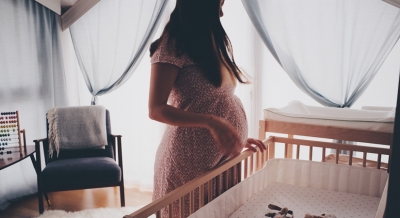New Delhi, Nov 4 (IANS) Women with a history of concussion face a 25 per cent higher risk of having severe mental health issues after childbirth, according to a new study on Monday.
The research, led by a team of Canadian researchers, underscored the importance of identifying individuals with past concussions early in their prenatal care and highlighted the need for long-term, trauma-informed support to safeguard their mental health.
“We found that individuals with a history of concussion were significantly more likely to experience serious mental health challenges, such as psychiatric emergency department visits or self-harm, in the years following childbirth,” said lead author Samantha Krueger, from McMaster University in Canada.
Krueger noted that the link “was especially strong for people with no prior mental health history”. The study noted that “concussion may be an important but overlooked risk factor during pregnancy and postpartum care”.
The team followed more than 750,000 birthing people across Ontario between 2007 and 2017 and tracked mental health outcomes for up to 14 years after delivery.
The results, published in the Journal of Clinical Psychiatry, showed that 11 per cent of women with a history of concussion experienced severe maternal mental illness, compared to 7 per cent for those without prior concussions.
Even after adjusting for various factors like age, income, and history of interpersonal violence, concussion was associated with a 25 per cent higher risk of severe mental illness.
Importantly, among women without a pre-existing mental health diagnosis, a prior concussion increased the risk of developing severe maternal mental illness by 33 per cent, compared to those with no concussion history.
The study also pointed out a lack of sleep among women following childbirth, as a risk factor.
“Sleep is critical to recovery after a head injury, but sleep deprivation is a reality for many new parents,” said Dr. Hilary Brown, Associate Professor in the Department of Health and Society at the University of Toronto Scarborough.
“Cognitive impairments, sensitivities to light and noise, and the stress of caring for a newborn can all intensify concussion symptoms, which in turn may raise the risk of mental health issues over time,” Brown added.
The researchers stressed the need for routine antenatal screening for concussion history, provision of mental health resources, and the use of trauma-informed care during the postpartum period.
–IANS
rvt/


Comments are closed.